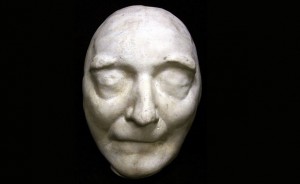Adapting Jonathan Swift’s “A Modest Proposal,” We Offer the Irish Government a Plan B for Reducing GHG Emissions
Last month, in the Reports section of irish environment, we covered an assessment by the EPA of the Irish government’s failures to reduce greenhouse gases (GHGs), in large part because of the excess emissions from agriculture.
We now accept that the Irish government is hell-bent on protecting the agri-food industry from any economic inconvenience as a result of the annoying requirements of the European Union that Ireland reduce its GHGs. Apparently, these GHGs are getting free rent to hang around the atmosphere and are messing up our planet to no end.
The government’s preferred course of action — what we’ll call its Plan A — is to persuade the EU, somehow or another, to exempt Irish agriculture from GHG targets. Ireland has had a lackluster reputation on environmental compliance in the past, has been financially bailed out by the EU and others, and seems on the precipice of reneging on its commitment under the bailout to implement water charges. So let’s assume that the EU is not persuaded and Plan A fails. As a result the government will have to come up with a Plan B where others beside the agriculture sector will have to sacrifice.
The government seems reluctant to devise a Plan B, or to let us know what it is, so we have put together a Plan B, following the example of Jonathan Swift’s very thoughtful A Modest Proposal (1729): For preventing the children of poor people in Ireland, from being a burden on their parents or country, and for making them beneficial to the publick — by cooking and eating the children. Our Plan B at least saves the children, if not others.
Over 75% of Ireland’s GHGs will come from agriculture and transport by 2020, and the agri-food industry must be left alone to export more food, like rich cheese and beef, so it looks like the transport sector will have to sacrifice.
Now just what or who is this transport sector. We see from an authoritative source, Wikipedia, that “transport” or “transportation” is “the movement of people, animals and goods from one location to another.” That sounds simple enough. All those who drive a car to get themselves, family and friends, or even enemies, to somewhere else are part of the transport sector. So are all those who take trains, planes, or boats. So are those who drive trucks to deliver goods, like food and iPhones, to all of us. And those who move animals. We just have to figure out a fair way to divide up all the cuts to GHGs within this sector.
But wait a minute. We cannot limit transport of animals in any way because that would interfere with the business of the agri-food industry. The industry will have to get an exemption for transporting any animals.
Perhaps the simplest method would be to limit car drivers to driving only certain days of the week, like every other day based on the first character in their license plate. But this may be difficult for people who drive in rural areas as the government forgot to build public transportation systems, like buses and trams, for them.
But wait another minute. Those in the agriculture sector live and work primarily in rural areas, so those in the farming community will have to get a pass on any limitation to their driving.
Unfortunately, then, every urban car driver likely will have to be limited to less driving, say once every several weeks depending on how much GHGs are produced by agri-fooders.
We can also limit every driver of a truck or van that is delivering goods to once a week, or once every several weeks. Unfortunately any such restriction might actually hurt those in the agri-food industry as their food products would not be delivered across Ireland as easily as they would wish. To solve this dilemma, members of the farming communities, who have been exempted, can drive their produce to airports across the country where the agri-food industry can simply export all the food to the UK and EU and China, avoiding the use of any Irish trucks or van.
Naturally there will be some collateral damage. Since food deliveries to people within Ireland will be severely restricted, people who have less mobility to search for food sources, like the old and infirm, will suffer. Children presumably will be provided food by their parents.
We think that it is inevitable that some, especially the old and vulnerable, will die as a result of Plan B.
Luckily there is an incidental benefit from Plan B. For each person who dies we will save her and his individual carbon footprint, thereby reducing Ireland’s GHGs.
And save the agri-food industry from making any sacrifices.
Sounds like a decent, viable Plan, and has the advantage over Swift’s modest proposal because in Plan B the children are saved, albeit at the expense of the old and vulnerable. After all, aren’t we trying to save the planet from GHG emissions for the sake of the next generation?
Source
Jonathan Swift, A Modest Proposal: For preventing the children of poor people in Ireland, from being a burden on their parents or country, and for making them beneficial to the publick. (1729). www.gutenberg.org/files/1080/1080.txt
Image: Death Mask of Jonathan Swift – Lawrence Hutton Collection of Life and Death Masks. Department of Rare Books and Special Collections. Princeton University Library



No comments yet, add your own below